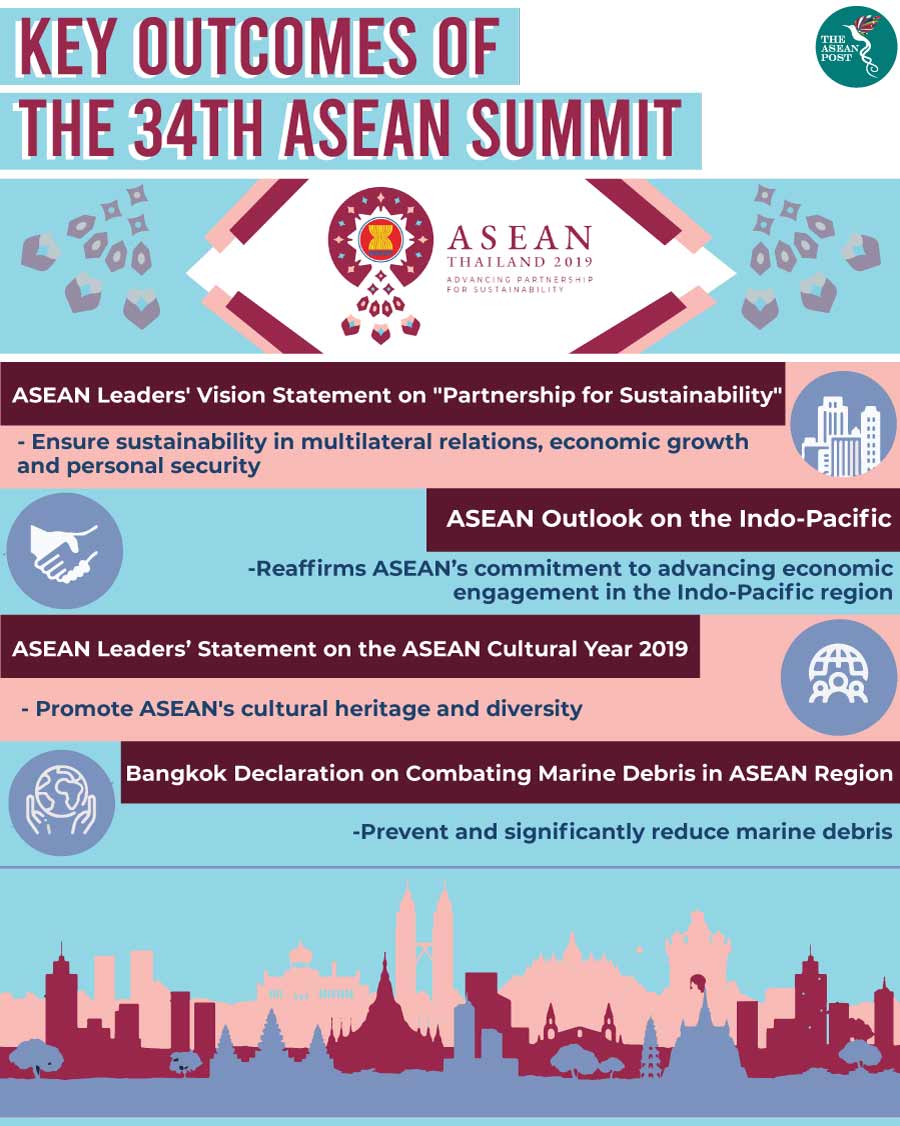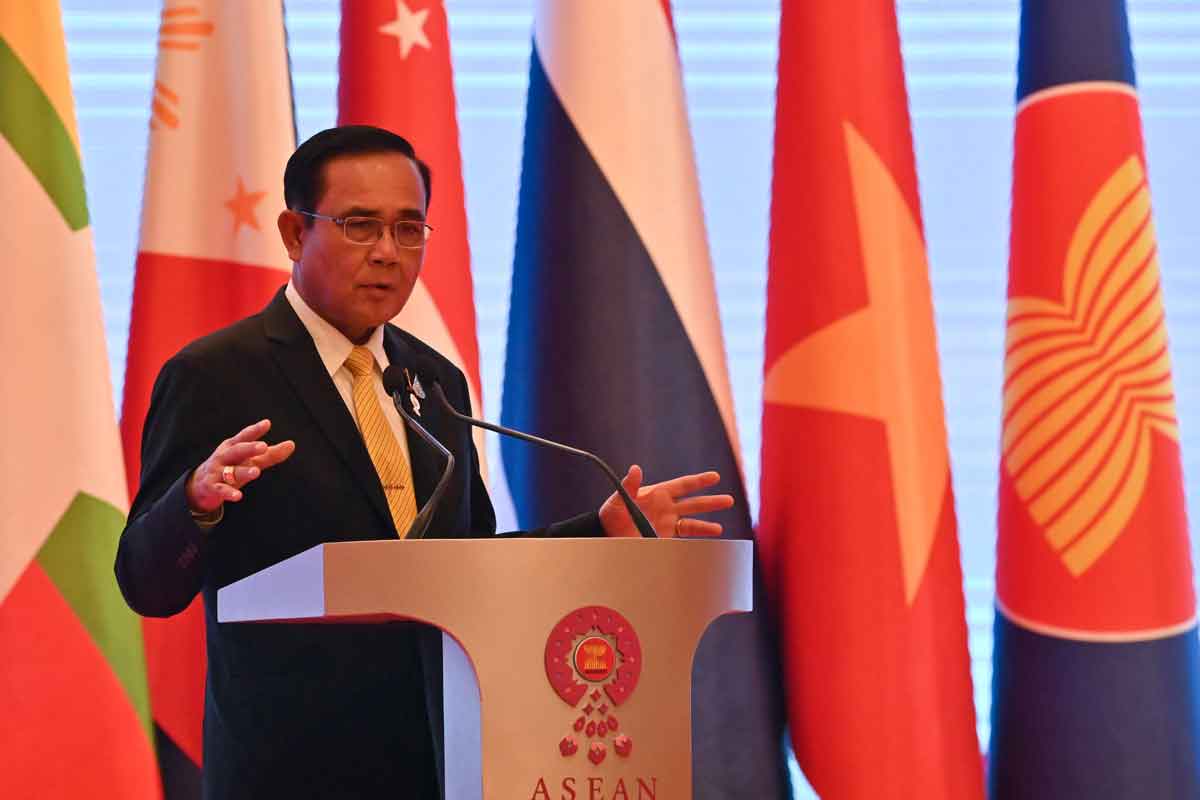The United States (US)-China trade war and the stalled negotiations for trade pacts and maritime guidelines were among the main issues at last week’s 34th ASEAN Summit in Bangkok, highlighting the region’s concerns over growing geopolitical and trade tensions.
Global trade is facing uncertainties after the US and China embarked on a see-saw of tariffs last year, with Filipino President Rodrigo Duterte calling for the two economic superpowers to “resolve their differences before the situation spirals out of control” during the summit which ended yesterday.
US and China are two of ASEAN’s most important trade partners, and in his closing statement on Sunday, Thai Prime Minister Prayut Chan-o-cha – who is also the Chairman of the 34th ASEAN Summit – expressed concern over the “unabating tide of protectionism and anti-globalisation sentiments that continue to plague the global economy and put the multilateral trading system under threat.”

Prayut, who used the summit to mark his transition from coup leader to democratically elected prime minister, reaffirmed the region’s strong commitment to upholding an inclusive, transparent and rules-based multilateral trading system.
RCEP, South China Sea
Prayut also urged the region to complete the Regional Comprehensive Economic Partnership (RCEP) negotiations in 2019. The RCEP is a proposed free trade agreement between the 10 ASEAN member states and six Asia-Pacific countries – Australia, China, India, Japan, New Zealand and South Korea – but negotiations which started in 2012 have been held up by disputes over access to markets and environmental protection.
Seen as an antidote to the protectionist policies of the current US government, the RCEP will involve up to 45 percent of the global population and is potentially valued at more than a third of the world’s gross domestic product (GDP).
A key global trade route rich in maritime resources, the South China Sea is one of the region’s most contentious sovereignty issues. Indonesia, Malaysia, the Philippines and Vietnam are disputing territories in the South China Sea with China, and numerous flashpoints over the years have led to calls to establish a Code of Conduct – which the Bangkok summit agreed to hasten.
Noting that there have been land reclamations and activities in the area which have “eroded trust and confidence, increased tensions and may undermine peace, security and stability in the region,” Prayut urged his counterparts to exercise “self-restraint and avoid actions that may further complicate the situation” in light of the 9 June incident where an anchored Philippine boat was allegedly sunk by a larger Chinese fishing vessel in the disputed Reed Bank.
Indo-Pacific consensus, Rohingya crisis
ASEAN member states also agreed on a common approach to the Indo-Pacific initiative – a term used by the US to describe its foreign policies in the region as opposed to the more commonly used ‘Asia Pacific’. Southeast Asian leaders agreed to adopt the ASEAN Outlook on the Indo-Pacific which will help guide ASEAN’s engagement and cooperation in relation to the wider Indo-Pacific region, and three other documents were also adopted during the summit.
The ASEAN Leaders’ Vision Statement on “Partnership for Sustainability” aims to deepen trust among the 10 ASEAN member nations and ensure sustainability in multilateral relations, economic growth and personal security while the Bangkok Declaration on Combating Marine Debris in ASEAN Region will commit leaders to prevent and significantly reduce marine debris. Meanwhile, the ASEAN Leaders’ Statement on the ASEAN Cultural Year 2019 has been created to promote ASEAN's cultural heritage and diversity – the former which has clearly been eroded when discussing Myanmar’s ethnic Rohingya population.
The issue was always going to be on the agenda in Bangkok, and as expected due to ASEAN’s non-interference clause, the summit did little to address the humanitarian crisis surrounding the exodus of 740,000 Rohingya Muslims from Rakhine state after a military crackdown in August 2017.
Once again choosing not to openly criticise Myanmar’s government and their “alleged human rights violations”, Prayut instead stressed the need to find a comprehensive and durable solution to address the root causes of the conflict and to create a conducive environment so that the affected communities can “rebuild their lives.”
While Prayut began his statement by noting that the heads of state were gathered in the Thai capital “to achieve a people-centred, people-oriented and forward-looking ASEAN Community that leaves no one behind,” it seems that for many ASEAN citizens, there is still a long way to go.
Related articles:
How RCEP can help small businesses
